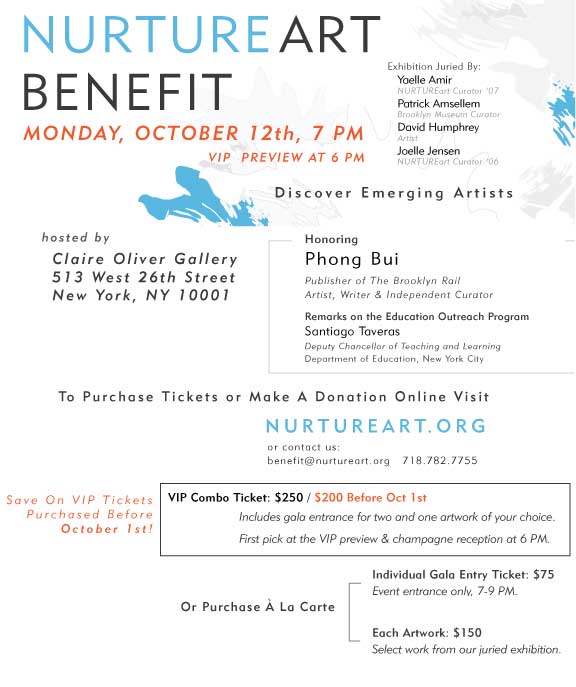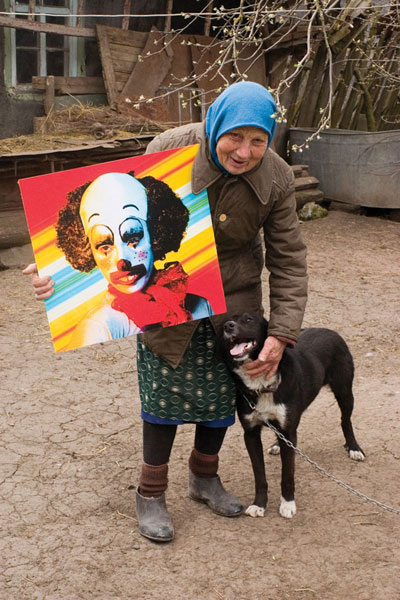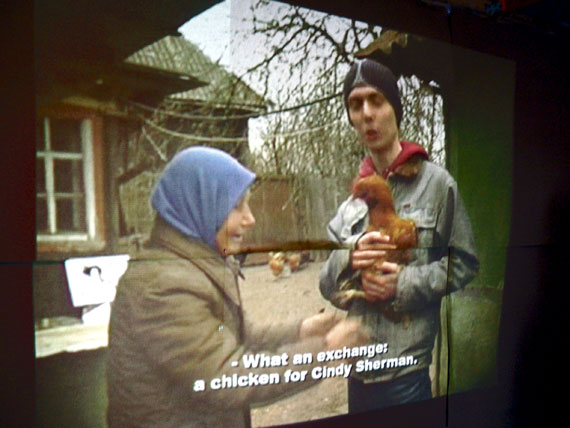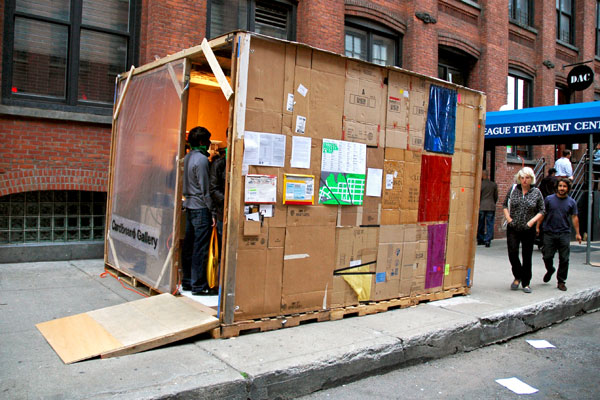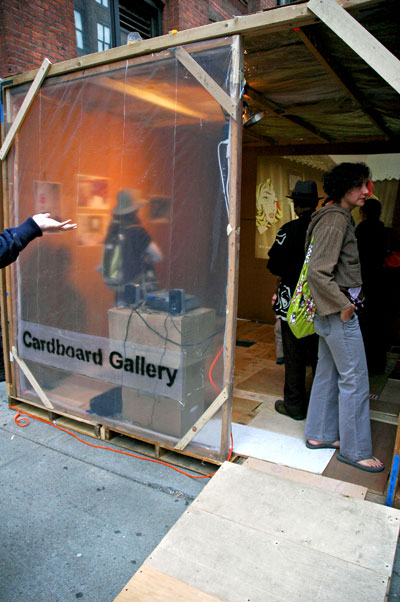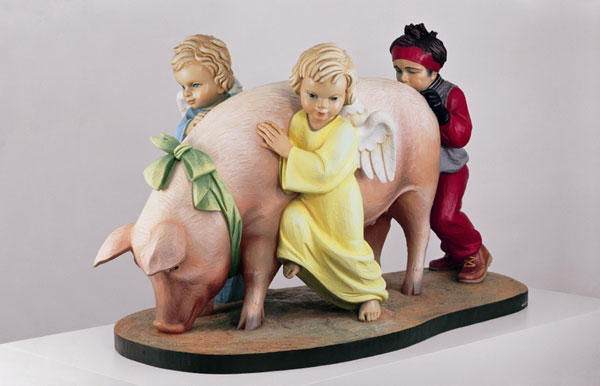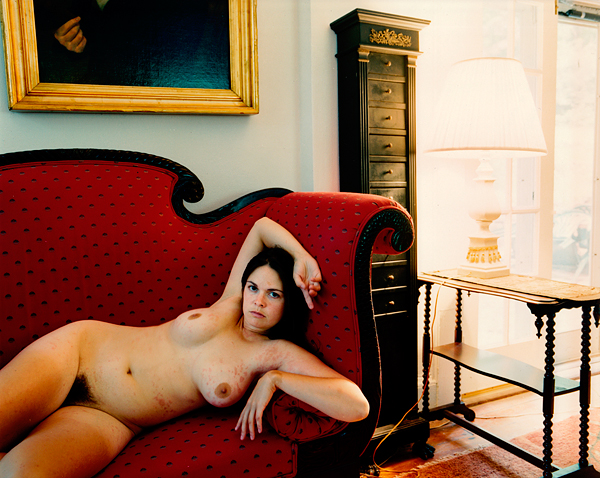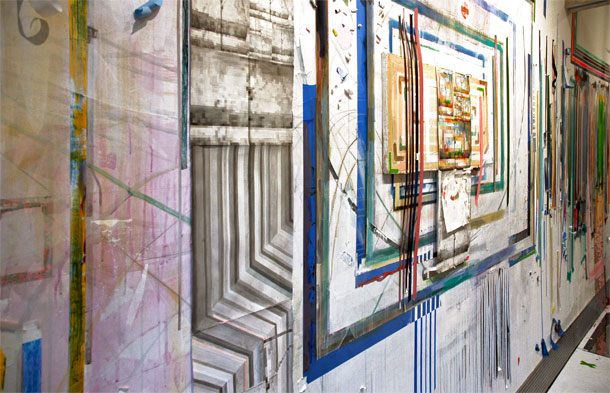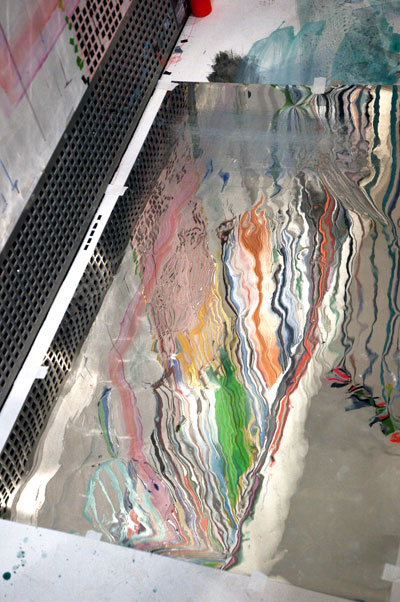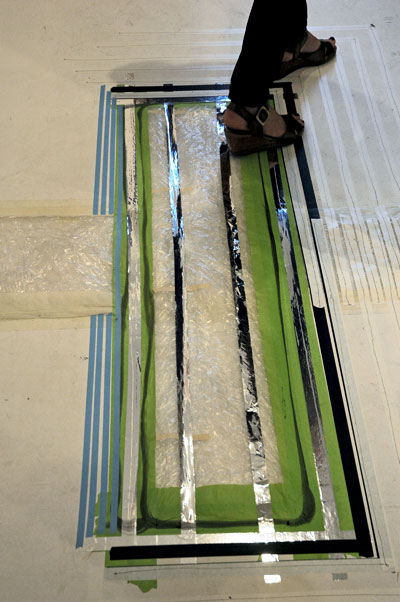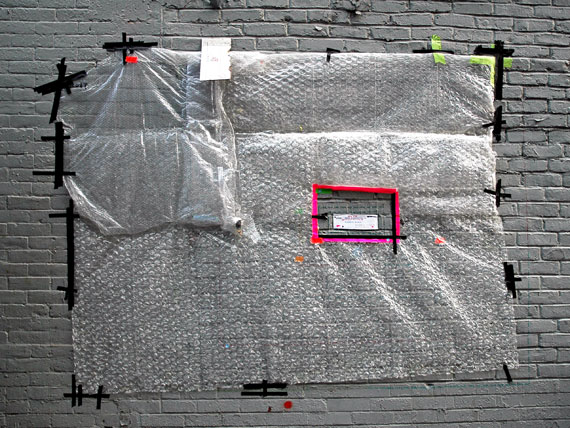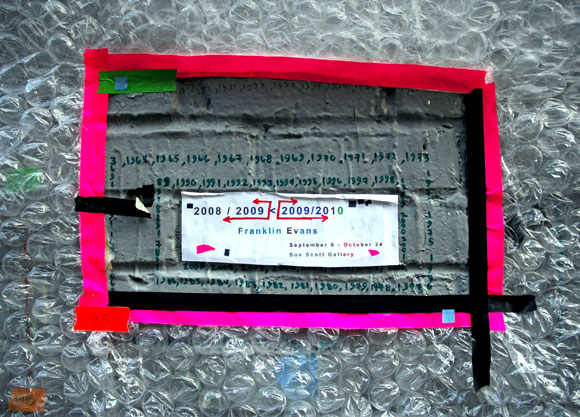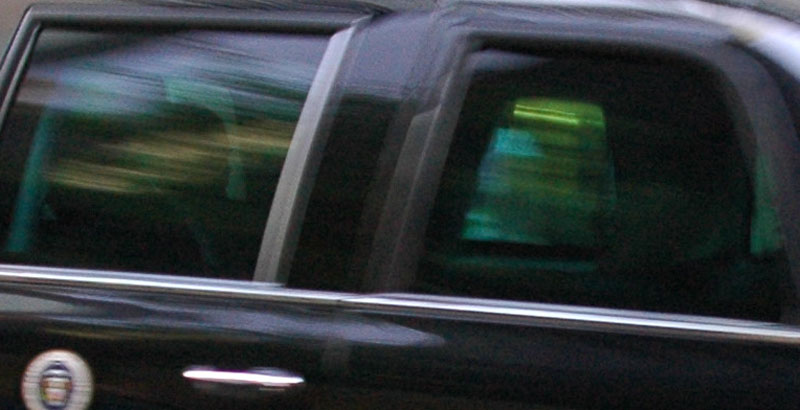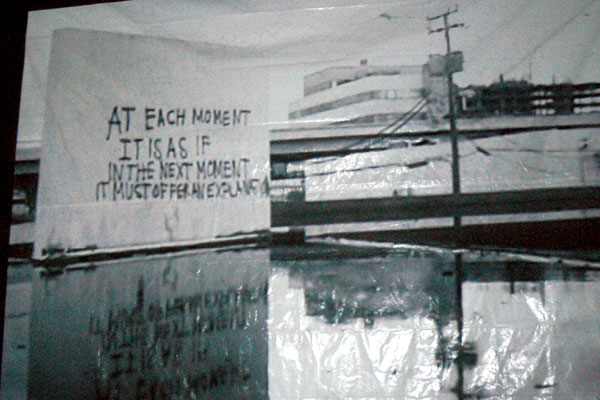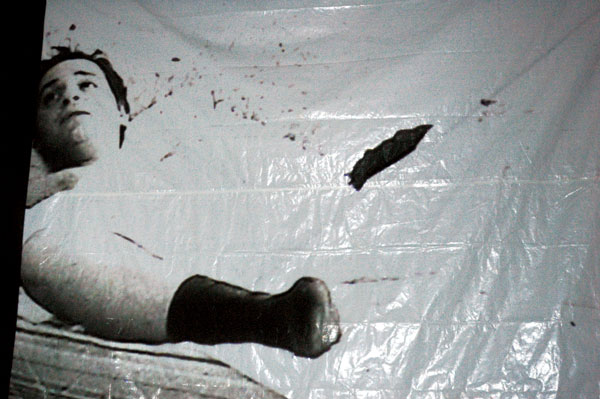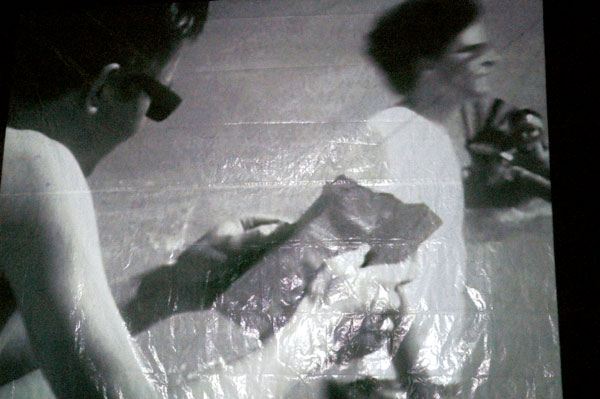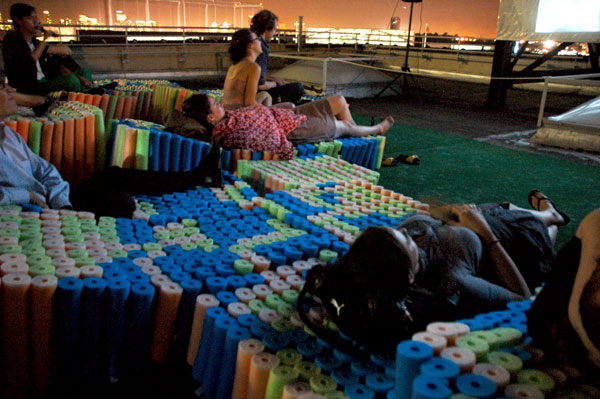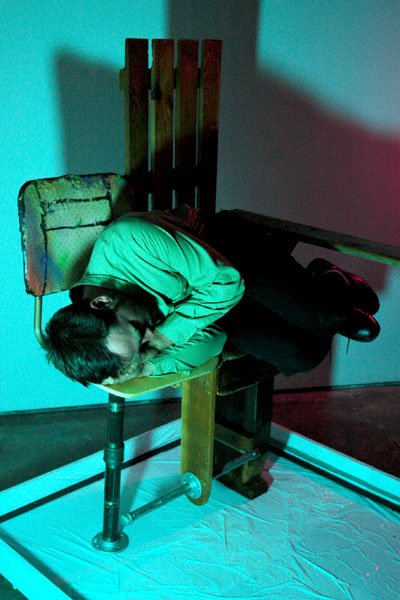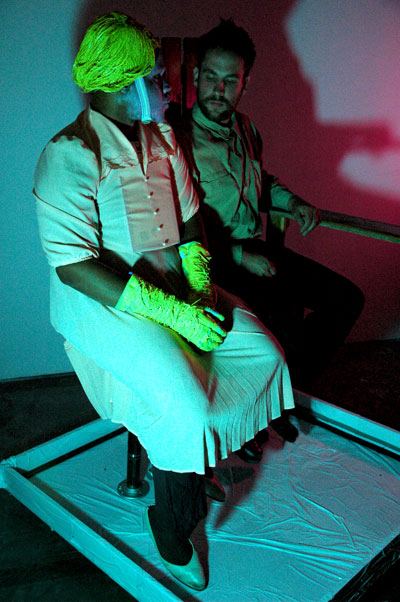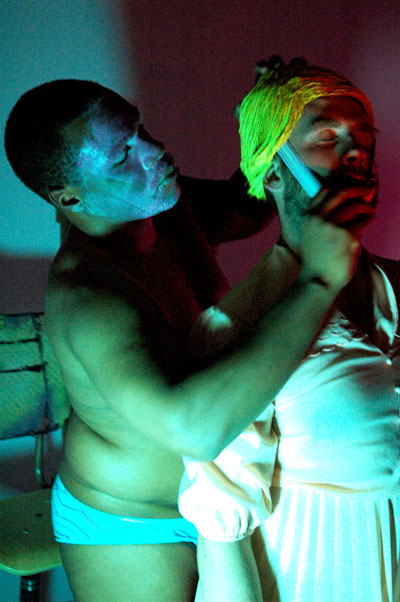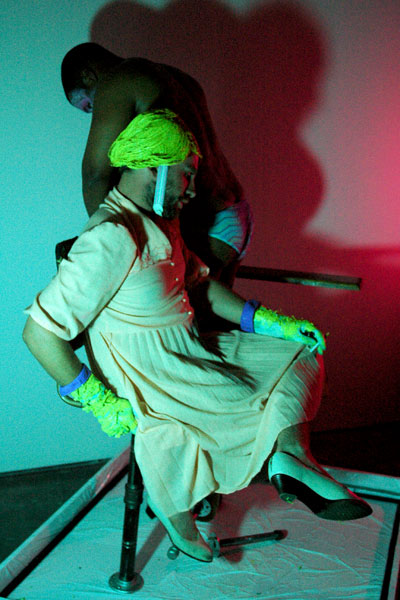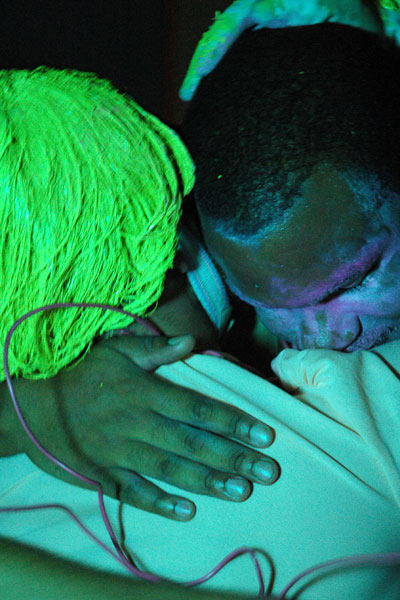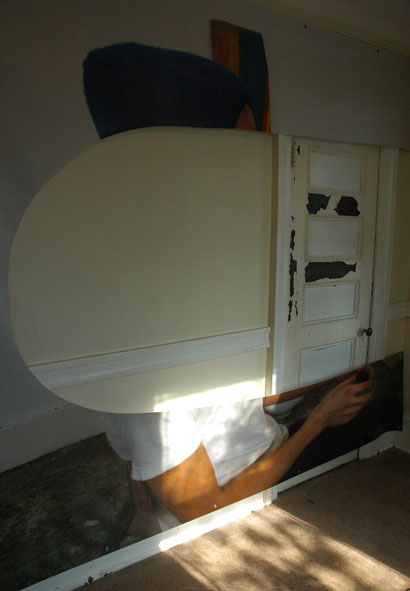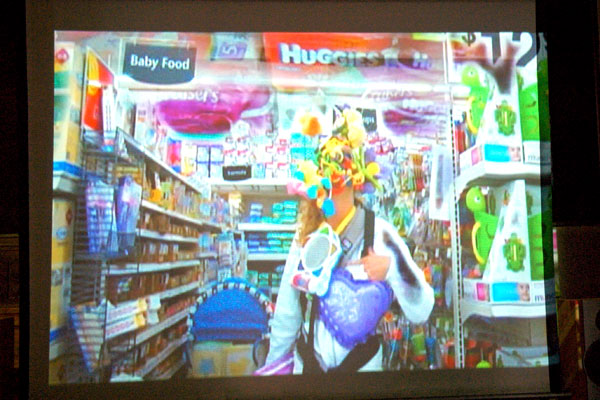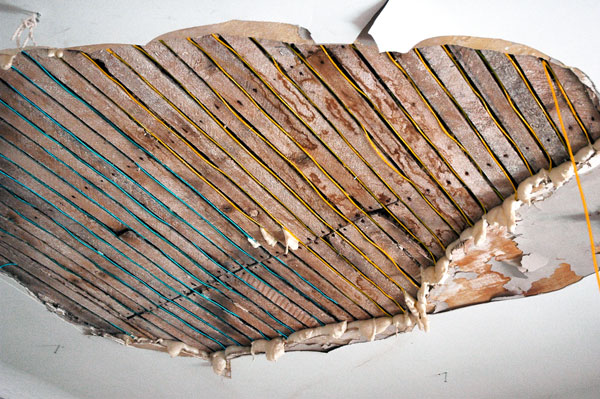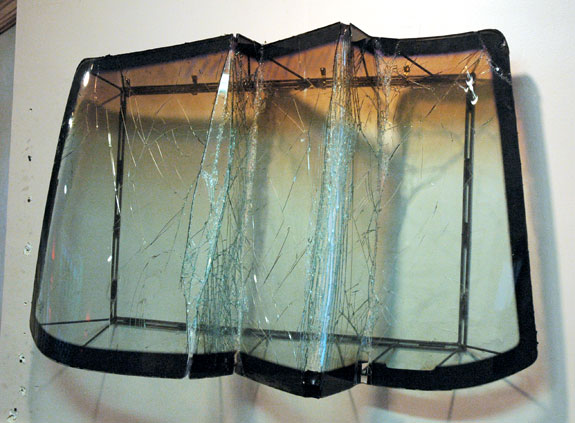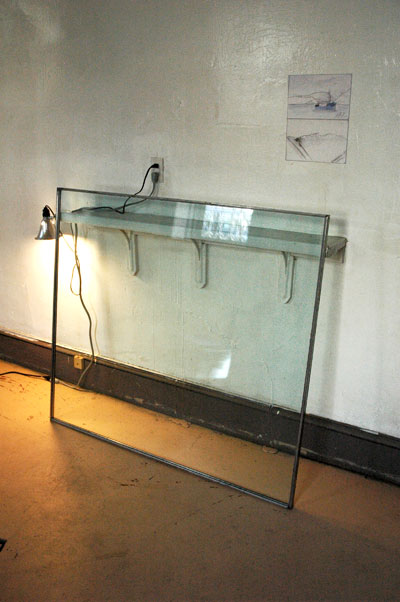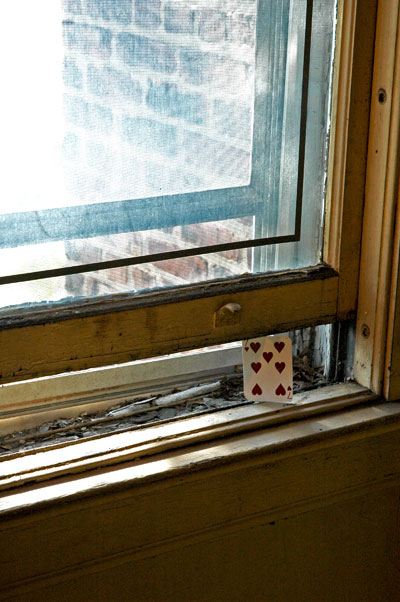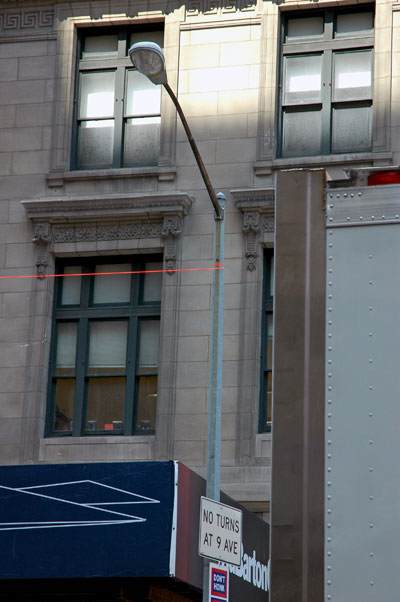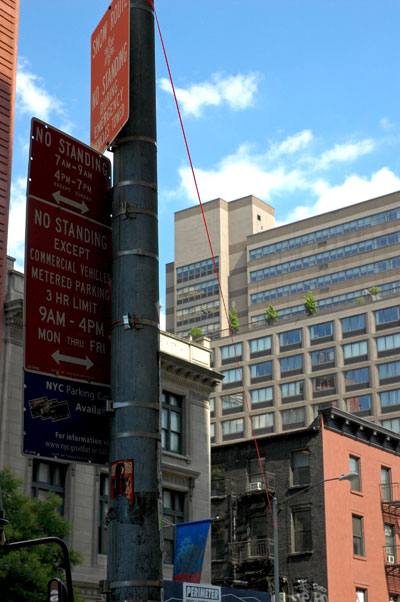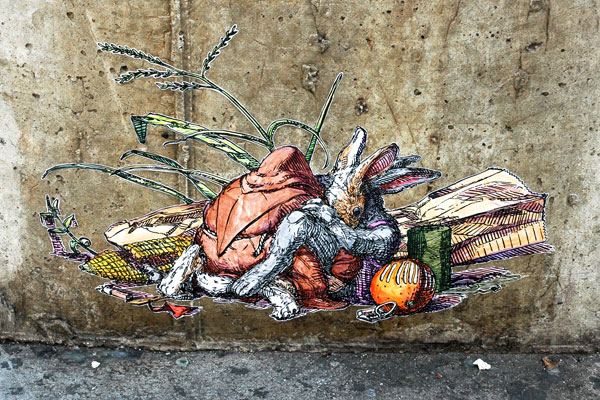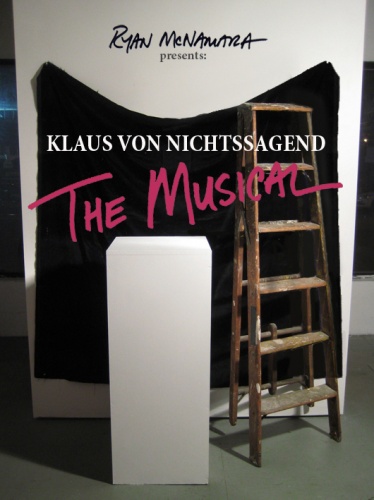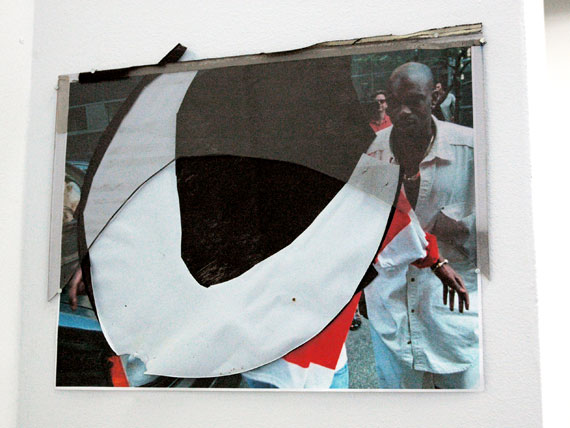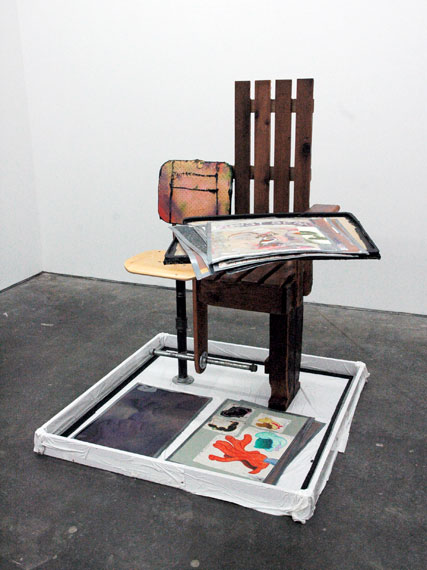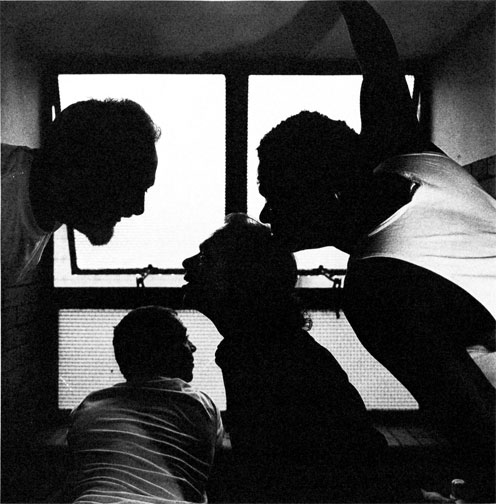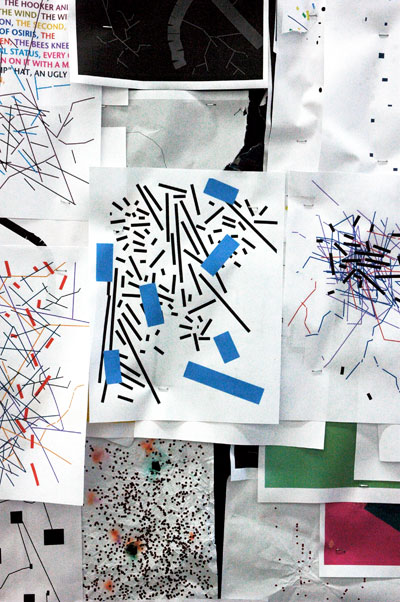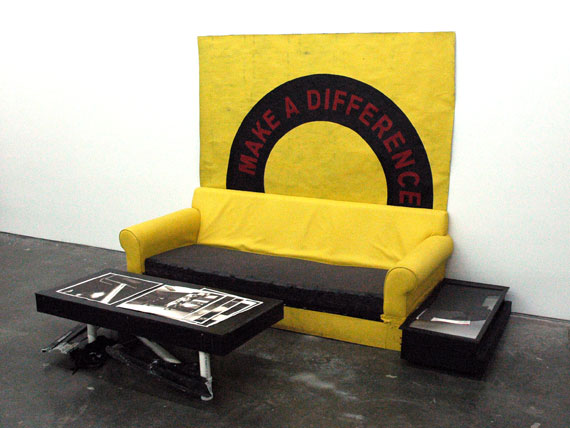
Jason Hanasik Steven Two-Faced 2007 digital C-print

Jason Hanasik Steven's self-portrait #2 2008 digital C-print

Jason Hanasik Steven's photograph of a man carrying two bottles of piss 2008 digital C-print

Jason Hanasik Patrick (Welcome) 2005 digital C-print

Jason Hanasik Steven (turn) 2008 digital C-print
I think it's about the fact that guys often have trouble functioning as full human beings, but sometimes they're offered an opportunity and they grab it; and then sometimes they lose it. I'd say this is true of both hets and homos.
The artist himself describes his project as
.
. . a photography, video, and installation project which engages image making as a platform to intervene inside Western culture's traditions and expectations as they relate to masculinity, sexuality, and class.
We, the men of these images and me, might not sit at an equal distance from the center, but we all have a complicated relationship to what is considered normal -- to our benefit and our destruction.
Jason Hanasik's show at +Kris Graves in DUMBO, with the (not quite) enigmatic title, "He Opened Up Somewhere Along the Eastern Shore", is an extremely moving exercise in storytelling with photographs, mostly the artist's own and some (not quite) "found".
Nine images are hung along one wall of the gallery and two more hang on a section of another wall to the left, with a final object, a hand-written letter reproduced as an inkjet print, at the near edge of a third wall on the right. Most of the photographs are dominated by the figure of a young male; some of the subjects appear several times. They are all marines.
Partly because the size of the prints varies and because they are each mounted at a different height, they appear to dance in front of the visitor, but without a real beginning - or an end; this is not going to be a simple narrative.
The images in the photographs bounce around in time and in space, and touch many emotions as they do so, as does their "story" itself; it's a story which could be written in many ways, and we can each find our own. Hanasik's materials provide a documentation of some intense, probably under-expressed, male friendships. They remind us of the difficulty we all have in characterizing the more heartfelt qualities of these friendships, whether we are parties to them or only observers.
The men photographed by the artist are brothers. Jason Hanasik grew up in Virginia knowing both Steven and Patrick, but he became a very close friend of Patrick, the older (his BFF, in fact). Jason and Patrick played football together in High School. Jason at first hardly knew Steven, who had his own best friend. His name was Josh, and he does not appear in these images. Their relationships, especially that of Jason and Patrick, were made more complicated as they grew older and each of them gradually became aware of Jason's homosexuality (including Jason himself), but Jason and Patrick's friendship survived, survived even the nightmares of Iraq, from which Patrick described this affectionate daydream in a letter to Jason:

Jason Hanasik 11Mar04 2009 inkjet print 10" x 8"
Jason was the only one of the four who did not join the marines and so was the only one who did not go to Iraq, where Steven was a part of a tragedy (the death in combat of his friend Josh on what had been the first "tour" for both of them) he was unable to share with his comrades. Then, on the first leg of an impulsive road trip with Steven something happened that changed Jason's relationship to his best friend's more taciturn sibling.
The title of the gallery exhibition refers to the catharsis Steven experienced while Jason and he were driving from Virginia to visit Patrick and his wife in upstate New York, Steven opened up, and it made possible a real friendship between the two for the first time. Like that shared by Jason and Patrick its emotional intimacy didn't fit the simple antithetical forms we're told are the only ones we can expect from male relationships.
Three of the photographs in the show were taken by the straight-identifying Steven while he was in Iraq. The two that are not self-portraits, in particular, are witness of just how inscrutable male emotions, and male sexuality, still remain to the understanding of all of us, male or female, straight or queer.
The installation also includes a video taken with a pocket camera or cellphone. It appears on the gallery wall as a smallish, faint, projected image, a short loop, and it shows two beautiful, smiling young marines dancing a tango, complete with dips, on the balcony of a barracks courtyard inside Baghdad. There is no sound.
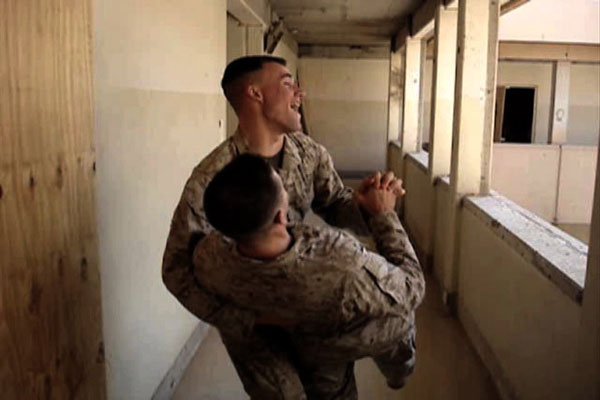
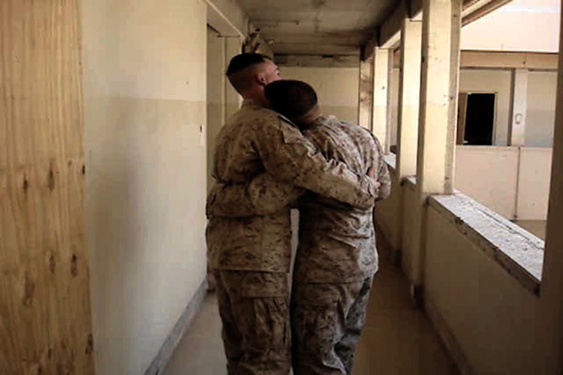
Jason Hanasik In the Green Zone: November 2007 digital video 2008 [two stills]
The video too is by Steven.
I remember, but only as someone who was able to watch from a safe distance, the horror of Vietnam, and what it did to the men and women of my generation: And the silence; all kinds of silence. It's excruciating to see it happening all over again.
After only a few minutes inside the gallery last week, I was already almost in tears, and at the time I had even less information than I am able to share in this post. Barry and I were fortunate to be able to hear more about the work in two conversations with the artist himself. Although at first I was somewhat reluctant to ask about the context of the project, Hanasik was generous in his replies.
I found that the images stand up either with or without much of a "background". Having seen them on line before talking to Hanasik and before we visited the gallery I know they can pretty much speak for themselves. That's why I had to get to the gallery: I wanted to hear them up close.
ADDENDUM: There is now a loop of the video, "In the Green Zone: November 2007" imbedded on the artist's site here.
[images provided by the artist]

